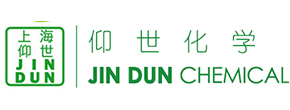Sodium Carboxymethyl Cellulose: A Versatile Cellulose Derivative
2023/5/6
Sodium carboxymethyl cellulose (CMC) is a water-soluble polymer derived from natural cellulose by introducing carboxymethyl groups (-CH2-COOH) to some of the hydroxyl groups of the glucopyranose units that make up the cellulose backbone CMC is also known as cellulose gum or carmellose, and it is often used as its sodium salt, sodium carboxymethyl cellulose
CMC has many functional properties that depend on the degree of substitution (DS), which is the average number of carboxymethyl groups per anhydroglucose unit, the molecular weight, and the distribution of the carboxymethyl groups along the cellulose chain CMC can act as a thickener, stabilizer, binder, emulsifier, dispersant, film-former, and water-retention agent in various products, both food and non-food
Some of the main applications of CMC are:
- Food industry: CMC is used as a food additive to improve the texture, mouthfeel, viscosity, and stability of various food products, such as dairy products, bakery products, sauces, dressings, beverages, ice cream, and candy. CMC can also prevent sugar crystallization, control ice crystal formation, and extend shelf life. CMC is generally recognized as safe (GRAS) by the US Food and Drug Administration (FDA) and has the E number E466
-
- Pharmaceutical industry: CMC is used as an excipient in various pharmaceutical formulations, such as tablets, capsules, suspensions, ointments, gels, eye drops, and wound dressings. CMC can enhance the solubility, bioavailability, stability, and release rate of active ingredients. CMC can also act as a lubricant, binder, disintegrant, coating agent, and mucoadhesive agent. CMC is approved by the FDA as an inactive ingredient in human and animal drugs
-
- Personal care industry: CMC is used as a rheology modifier, moisturizer, film-former, and stabilizer in various personal care products, such as toothpaste, shampoo, conditioner, lotion, cream, soap, and cosmetics. CMC can improve the appearance, consistency, spreadability, and performance of these products. CMC is also biodegradable and biocompatible
-
- Paper industry: CMC is used as a paper additive to improve the strength, smoothness, brightness, printability, and water resistance of paper and paperboard. CMC can also act as a sizing agent, retention aid, coating agent, and surface treatment agent. CMC can reduce paper dusting and increase paper durability
-
- Textile industry: CMC is used as a textile auxiliary to improve the dyeing, printing, finishing, and sizing of fabrics made of cotton or viscose rayon. CMC can also act as a thickener for printing pastes and a protective colloid for synthetic fibers. CMC can enhance the color yield, fastness, and uniformity of textile products
Other industries that use CMC include oil drilling, mining, ceramics, paints, adhesives, detergents, and construction. CMC is a versatile cellulose derivative with diverse applications that can meet various industrial and consumer needs.
- Related information

